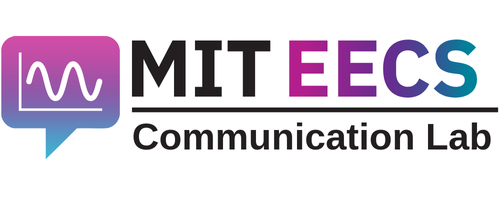You can meet with a Fellow in person (24-311) or virtually (Zoom) for either 30 min or 60 min. You’ll be able to make your selection when you book your appointment online.
You do NOT need to have a complete draft to book an appointment!
The Communication Fellows will meet you wherever you are in the writing process. You can come to us with just ideas floating in your head (brainstorming, getting started), with an outline, with a full document ready for revision, or anywhere in between.
What we do and what we don’t do
The Communication Lab focuses on improving the writer, not the document. We use our technical and communication training to guide you in navigating and finding suitable answers to your writing questions and to give you customized feedback. Each session is centered around your goals, questions, needs, and deadlines.
| What we do | What we don’t do |
| We help with any technical communication task (eg, presentation, journal or conference paper) or professional document (eg, cover letter, diversity statement, grad school application) that you may be working on. We use strategic questions and direct feedback to help you think about communication as a process rather than a checklist.
Examples of prompts a Fellow might ask: [Data visualization] There is a lot of information in this cross section plot. Especially for a slide presentation, it could be overwhelming. What are you hoping to show here? [CV/resume] I notice you’ve listed your lab responsibilities here. Can you tell me a bit about your contributions as a UROP in Prof. X’s group? [Grant proposal] In which ways did you demonstrate feasibility? Also, because this is for the Department of Defense, we should highlight why this project is relevant to them. |
We avoid tasks that are beyond our training and expertise. Here are some services that we do NOT provide (but that we may flag in passing if needed):
|
During the appointment
A typical Comm Lab appointment has four main stages. At the beginning of the appointment, the Fellow you are meeting will ask questions about what you are working on and what you are hoping to get out of the appointment. Next you will be asked to share your document with the Fellow physically or digitally. The Fellow will take some time to review the document in the context of your goals while you work on a tailored activity. Then you will engage in a discussion about ways to improve the document and meet your communication goals. Finally, you and the Fellow will wrap up the appointment by discussing your next steps. You can ask questions at any point during the appointment.
| 3-5 min Goal setting |
Discuss deadlines, concerns, purpose of the document, goals for the session |
| 5-10 min Document review |
You work on a tailored communication activity while the Communication Fellow reviews your document |
| 40 min Brainstorming, organization, discussion |
Address high-priority concerns Discuss best practices Explore ways to meet your communication objectives |
| 5 min Next steps |
Evaluate progress Identify next steps |
Other useful resources at MIT include:
- The Writing and Communication Center (WCC): They are staffed by MIT lecturers who are published writers and experienced teachers. WCC provides one-on-one consultation on written and oral communication, and addresses all concerns ranging from structure to style, as well as English grammar.
- Career Advising & Professional Development (CAPD): Their staff can help you with a wide spectrum of tasks including CV reviews, mock interviews, polishing your LinkedIn profile, and networking.
- The Office of Graduate Education (OGE): They offer numerous resources such as ways to gain teaching experience, information about fellowship opportunities for international students, and support for those pursuing a career in academia.
- EECS librarian Phoebe Ayers: Reach out if you want help finding a source or a reference or if you want help with a literature search.
- The English Language Studies (ELS) program through MIT Global Languages (for MIT students only): They offer writing courses for bilingual students, workshops on writing for science and engineering, and training in speaking and pronunciation.
